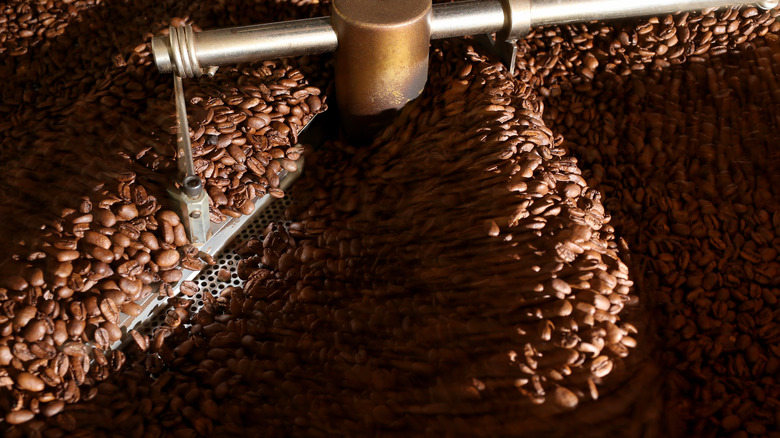Does Coffee Actually Hydrate You?
Coffee is one of life's guilty pleasures. Nestled in cozy, steaming mugs, it welcomes daybreak and fuels afternoons with renewed energy. But maybe the "guilty" part is overstated and even outdated. Modern day research points to various coffee-related health benefits while also debunking some negative assumptions.
First up is the revelation that natural substances in coffee may reduce the risk of Alzheimer's disease, explains Johns Hopkins Medicine. Studies show that just two cups of caffeine per day can guard against the development of Alzheimer's, while drinking two to three cups daily may help prevent dementia. It may also help maintain a healthy liver, lower inflammation, and reduce the chance of coronary heart disease, type 2 diabetes, colon cancer, kidney disease, and Parkinson's disease. That's a whole lot of goodness in your coveted cup of java.
When it comes to hydration, the debate is a bit more nuanced. Does drinking coffee dehydrate your body or does it actually contribute to essential daily fluid needs? Here's how the conversation plays out amongst medical professionals.
Hydrating the easy way
Though caffeine works as a mild diuretic, Dr. Daniel Vigil from the David Geffen School of Medicine at UCLA explains the hydration effect, according to Time magazine. Though caffeine flushes the kidneys and eliminates fluid, it doesn't actually lead to dehydration. That's because, along with the caffeine, you're absorbing fluids from coffee. Since the body naturally absorbs the fluid you need and eliminates excess, it's totally acceptable for your coffee consumption to count toward the necessary daily amounts of water. That amount varies depending on circumstances, but the Institute of Medicine generally advocates nine to 13 cups of water daily, per WebMD.
By way of comparison, Healthline reports on a study in which casual coffee drinkers consumed predetermined amounts of plain water, low-caffeine coffee, and high-caffeine coffee. The goal was to identify signs of dehydration based on caffeine content versus water alone. Study results, as published by Frontiers in Nutrition, concluded that both water and low-caffeine coffee were hydrating resources, while high-caffeine coffee produced a short-term diuretic effect. Another study published by the journal, Plos One, looked at 50 "coffee habituated" males who consumed three to six cups per day. It confirmed that drinking moderate amounts of coffee did not lead to dehydration but provided similar hydration effects to water.
We can all feel better now about our desire for caffeine. In addition to the slew of potential coffee-induced health benefits when consumed in moderation, we also may have a boost of hydration for overall well-being.

